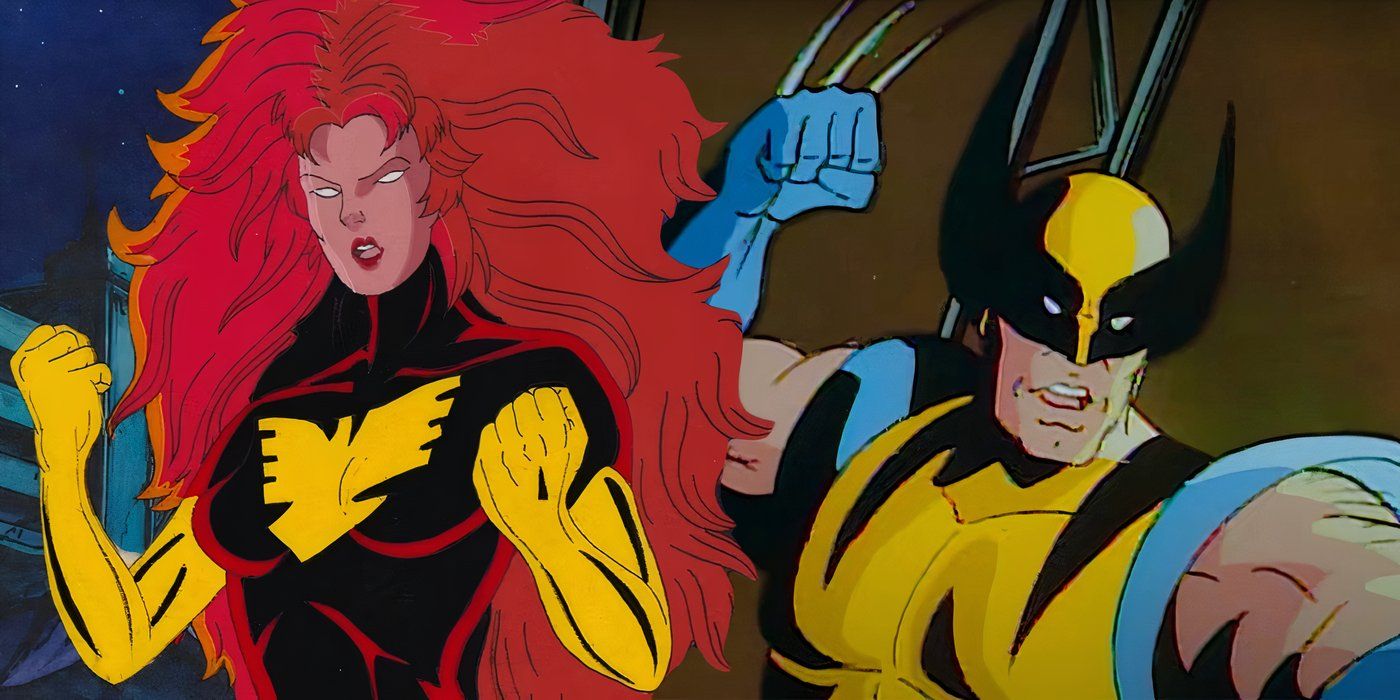
X-Men: The Animated Series might be one of the greatest animated Marvel shows ever, but there are still numerous aspects that make no sense. X-Men: The Animated Series is a beloved 1990s animated television show that brought the popular Marvel Comics superhero team to the small screen. Over five X-Men: TAS seasons, the show left audiences scratching their heads over numerous plot inconsistencies, confusing character decisions, and unexplained events. These issues are often overlooked due to the show’s nostalgic charm, but they remain curious oddities that raise questions about the series’ internal logic.
X-Men: TAS was one of the first major successes in animated superhero television, helping to cement the X-Men as pop culture icons. The show is known for its complex storylines, faithfulness to the source material, and its introduction of many Marvel characters to a wider audience. It was also lauded for its mature themes, tackling issues such as prejudice, discrimination, and the fight for equality – core elements of the X-Men mythos.
10. The X-Men: TAS Timeline Is a Mess
Many X-Men: TAS Episodes Were Aired Out Of Order
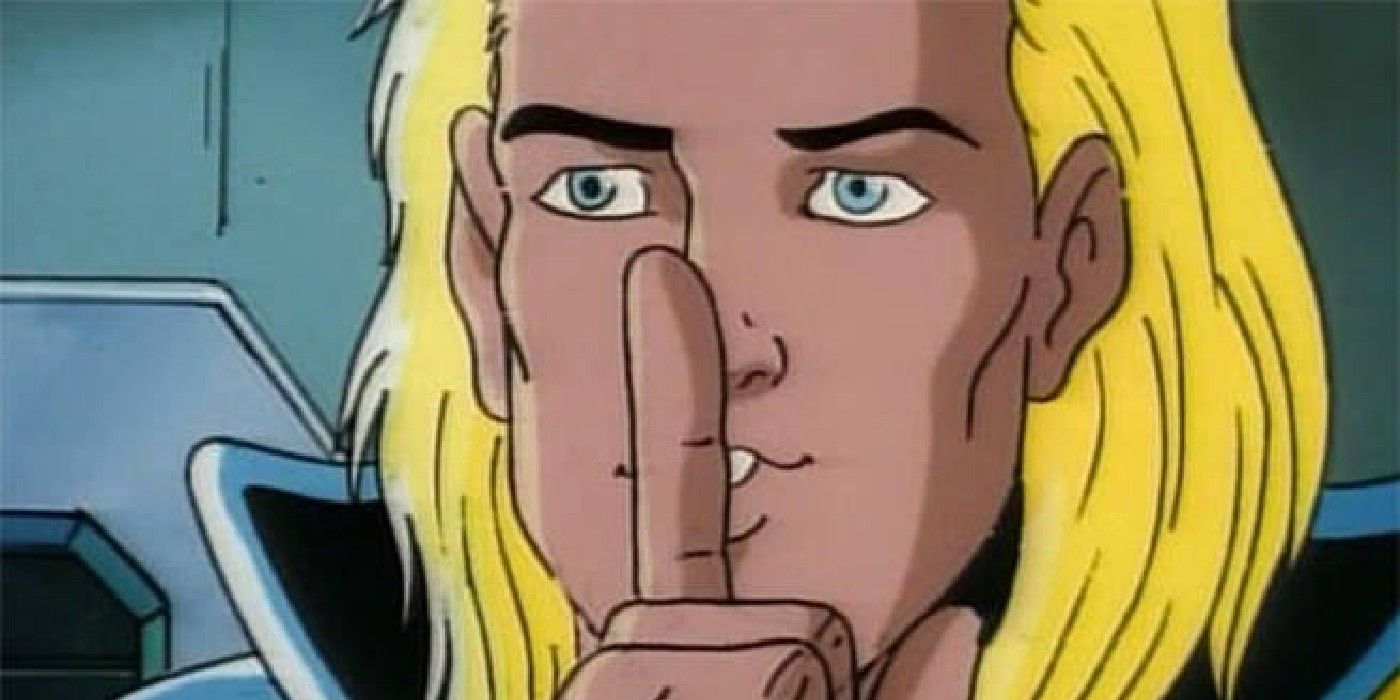
One of the most perplexing aspects of X-Men: The Animated Series is its disjointed timeline. Due to episodes being aired out of order, viewers were often left confused by the sequence of events. For instance, Cyclops is seen mourning the death of Jean Grey shortly after she has already returned, creating a jarring and emotional dissonance. This issue was a recurring problem throughout the show’s run.
The timeline chaos was further complicated by the fact that the X-Men comics are notorious for their complex and often contradictory timelines. It seemed only fitting that the animated series would inherit some of this confusion. Thankfully, Disney+ has since reordered the episodes according to their intended sequence, fixing many of these timeline discrepancies. However, for those who watched the series during its original run, the out-of-order episodes created a narrative mess that took away from the story’s impact and coherence.
9. Jean Grey Doesn’t Tell Cyclops About His Father
Cyclops’ Father Is The Space Pirate Corsair
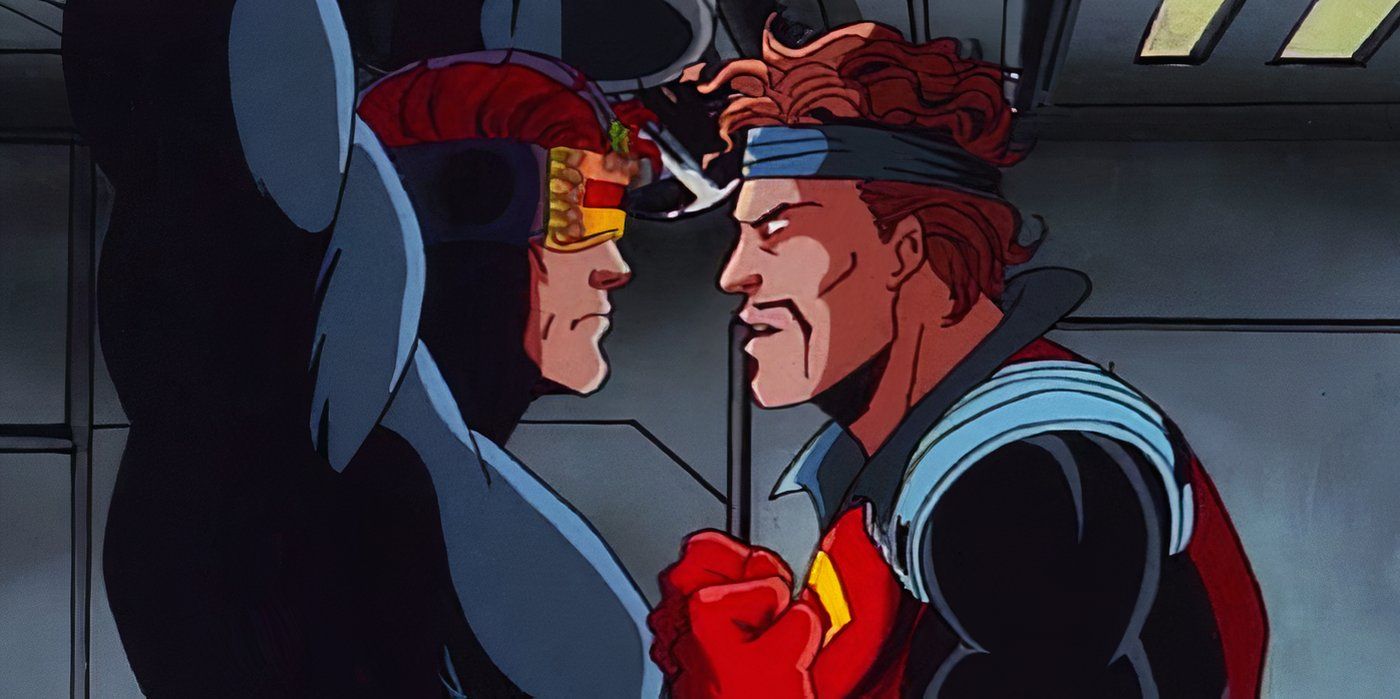
One of the most puzzling character decisions in X-Men: The Animated Series involves Jean Grey and Cyclops’ father, Corsair. In season 3, episode 6, “The Phoenix Saga, Part IV: The Starjammers,” Jean Grey encounters Corsair and uses her telepathic abilities to read his mind. She discovers that Corsair is actually Christopher Summers, the long-lost father of her teammate and fiancé, Cyclops. However, despite this revelation, Jean inexplicably decides not to share this information with Cyclops.
Cyclops remains in the dark about his father’s identity until later in X-Men: TAS season 3, episode 18, “Orphan’s End,” when the truth finally comes to light. The delay in this revelation makes little sense, especially considering Jean’s close relationship with Cyclops. Why wouldn’t she tell him immediately? Her silence on the matter feels contrived and out of character, particularly given the high stakes and the couple’s deep emotional connection.
8. The Archangel Plot Hole
Angel Was An Original X-Men In The Comics
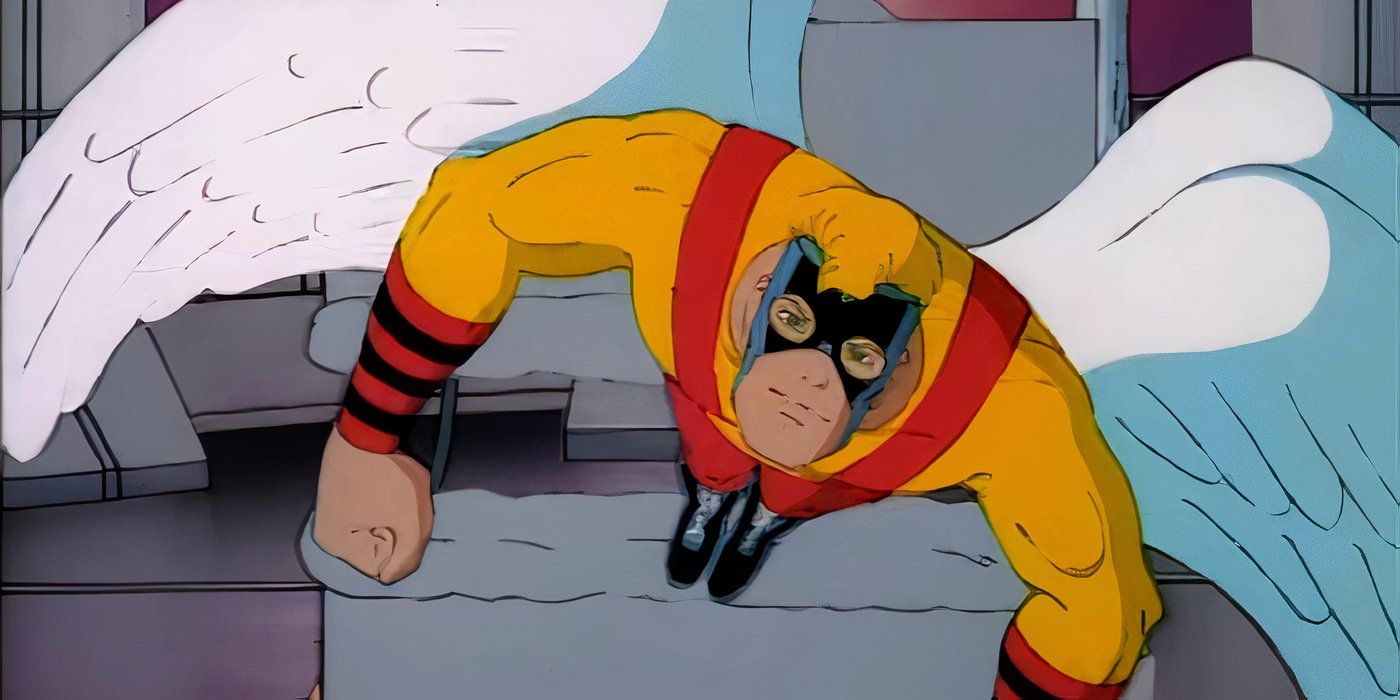
Warren Worthington III, also known as Angel, is introduced in X-Men: TAS season 1, episode 9, “The Cure,” as a character unfamiliar to the X-Men. In this episode, Angel seeks a cure for his mutant abilities, only to fall victim to the manipulations of the villain Apocalypse, who transforms him into Archangel. This leads to several further encounters with the X-Men in subsequent episodes, where no previous affiliation with the X-Men is noted.
However, later in X-Men: TAS, Angel is depicted as an original member of the X-Men, creating a significant continuity error. Flashbacks depict Angel as part of the original X-Men, alongside Cyclops, Beast, Cyclops, and Jean Grey. This Angel contradiction is further solidified in X-Men ’97, where it is confirmed that Angel was indeed a member of the original X-Men lineup, despite the earlier portrayal in the animated series.
7. The Opening Credits Teased Villains That Never Appeared
X-Men: TAS’s Iconic Opening Titles Were Misleading
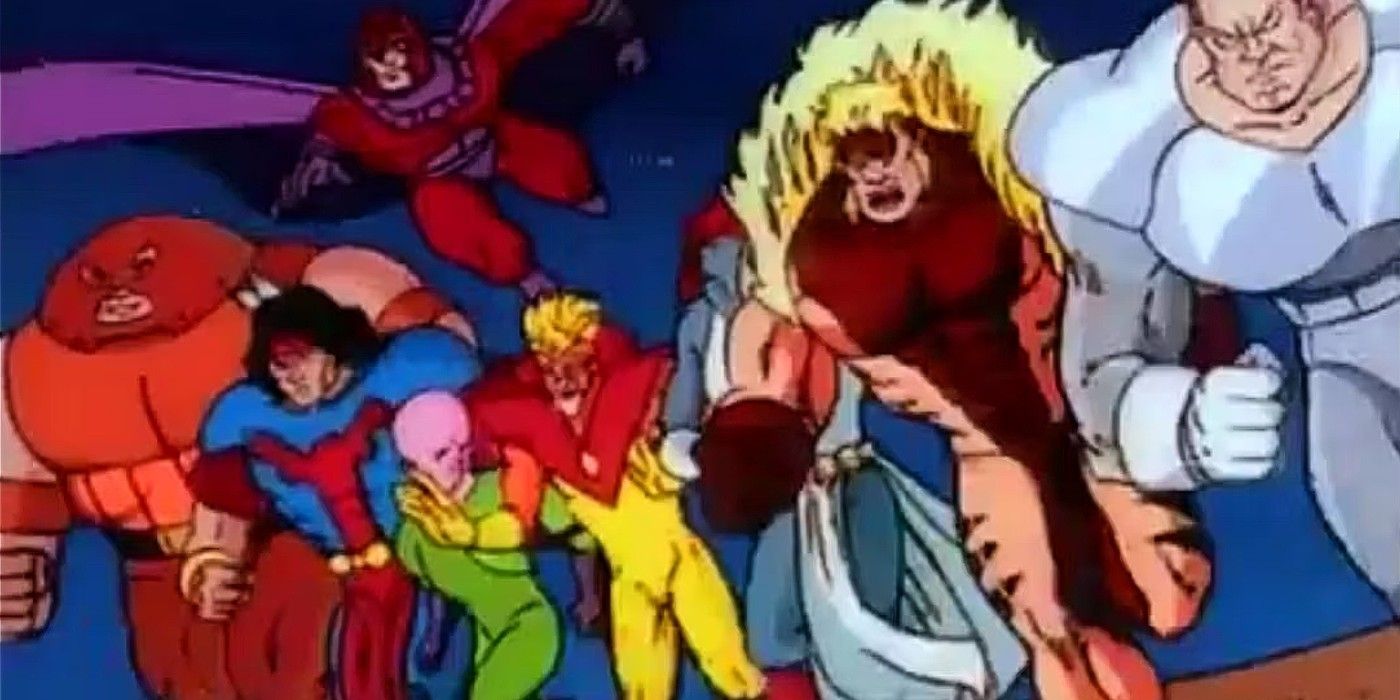
The opening credits of X-Men: The Animated Series are iconic, featuring a memorable theme song and dynamic action sequences. This sequence also teases several villains, building anticipation for an epic showdown between the X-Men and villainous mutants. However, not all of these villains actually make an appearance in the show.
Two notable characters who were featured in the opening credits but never appeared in X-Men: TAS are Warpath and Gargoyle. These characters are prominent in the comics, and their inclusion in the credits led many to expect their eventual introduction in the storyline. This was finally addressed in the opening credits for X-Men ’97, which replaced the villains with two who do appear in the series, Emma Frost and Lady Deathstrike. Nonetheless, the original series’ failure to deliver on these teases remains a strange and unresolved aspect of X-Men: TAS.
6. Rogue’s History With The Brotherhood of Mutants
Mystique Is Rogue’s Foster Mother
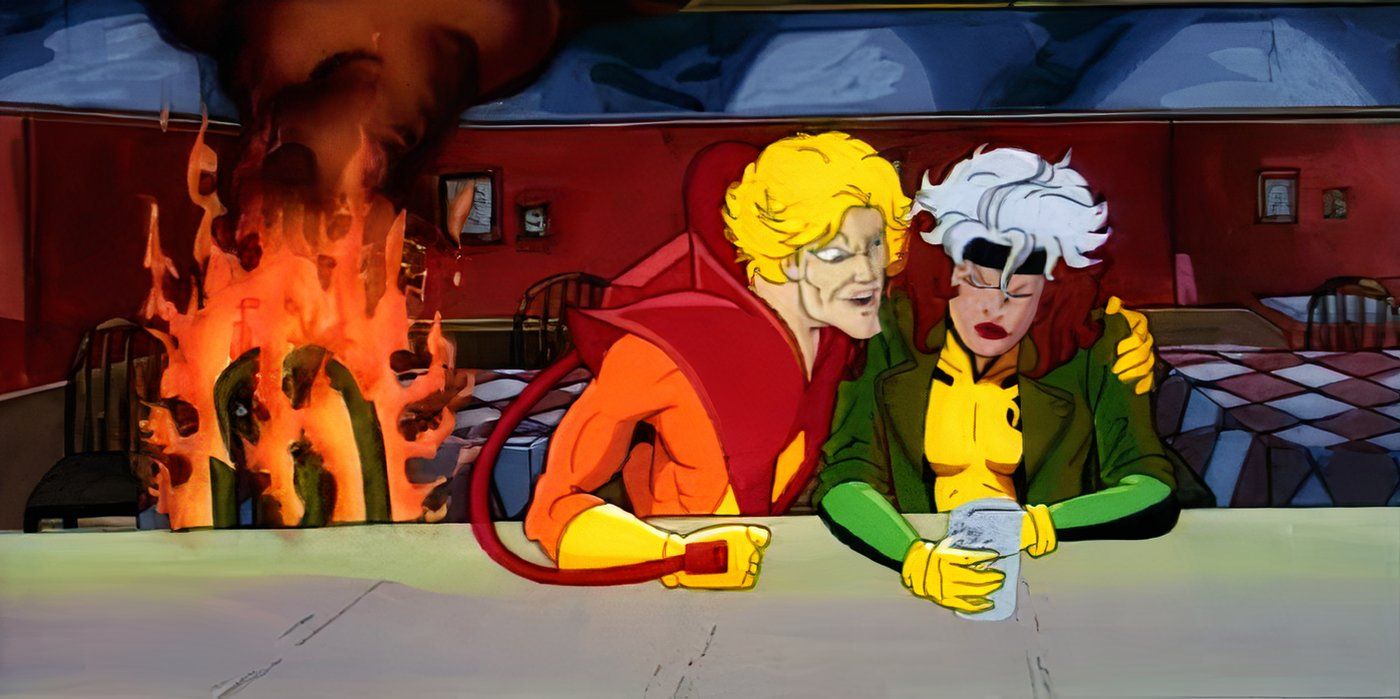
Rogue’s past is a significant part of her character arc, particularly her history with the Brotherhood of Mutants. However, X-Men: The Animated Series seems to struggle with consistently portraying this aspect of her backstory. In several episodes, such as “The Cure,” Rogue encounters members of the Brotherhood, yet there is no acknowledgment of their shared history. These encounters are treated as if the characters are meeting for the first time, which is at odds with the later revelation of Rogue’s past.
In X-Men: TAS season 2, episode 9, “A Rogue’s Tale,” it is revealed that Rogue was once a member of the Brotherhood, specifically during an attack on Ms. Marvel. This episode provides crucial context for Rogue’s guilt, the struggle with her powers, and how she permanently absorbed Ms. Marvel’s abilities during this battle. However, this significant history seems to have been forgotten in earlier episodes.
5. Inconsistent Depictions Of Powers
Some X-Men Seem To Forget Some Of Their Powers
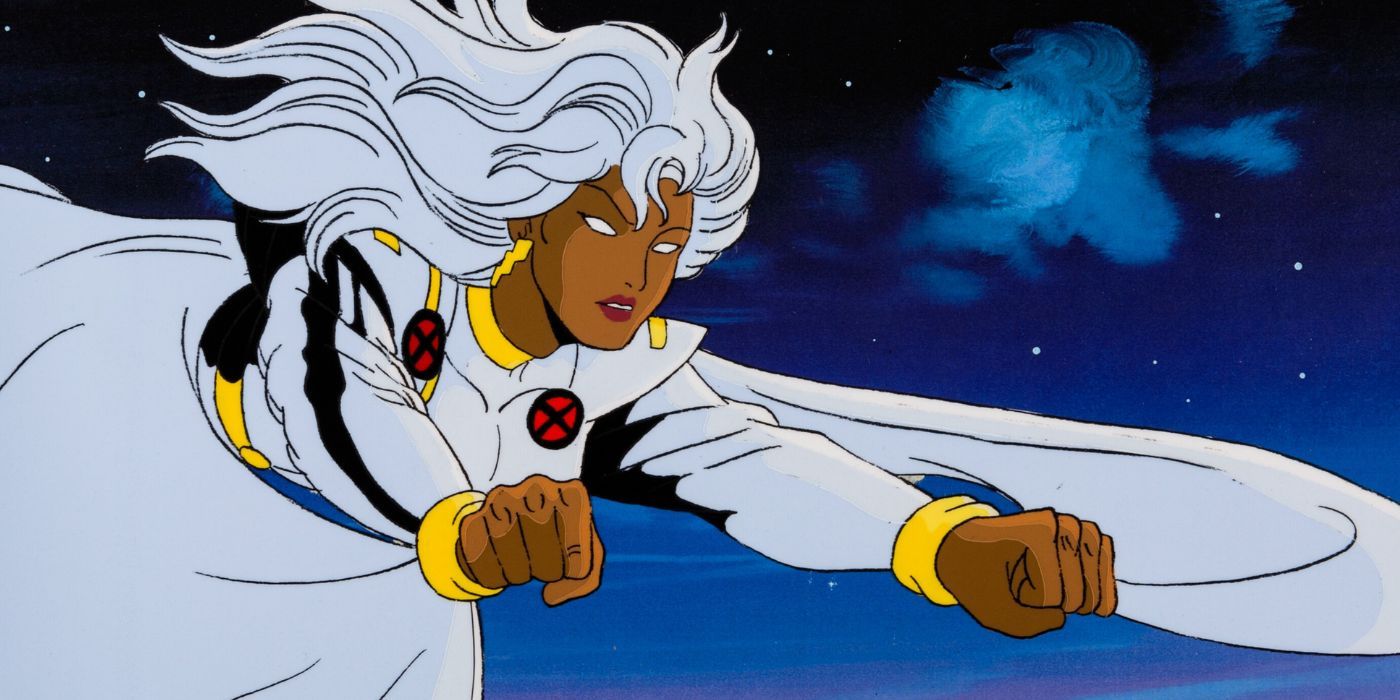
One of the recurring issues in X-Men: The Animated Series is the inconsistent depiction of the characters’ powers. Throughout, several mutants display abilities in some episodes that they seem to lack in others. For example, Jean Grey is shown levitating objects and herself in certain episodes, yet at other times needs rescuing from a fall.
Similarly, Storm is depicted as a powerful mutant capable of single-handedly taking down Sentinels in some episodes, yet she is inexplicably rendered helpless or unable to use her powers in other situations, such as when a Sentinel quickly captured her in “Slave Island.” One of the most glaring examples is Storm’s ability to change her clothes using her powers. This bizarre and unexplained ability appears out of nowhere and is never seen again. These inconsistencies suggest a lack of clear guidelines for how the characters’ powers should function within the series.
4. Cable’s Character Changes
Cable Was Changed To Be Closer To The Comics
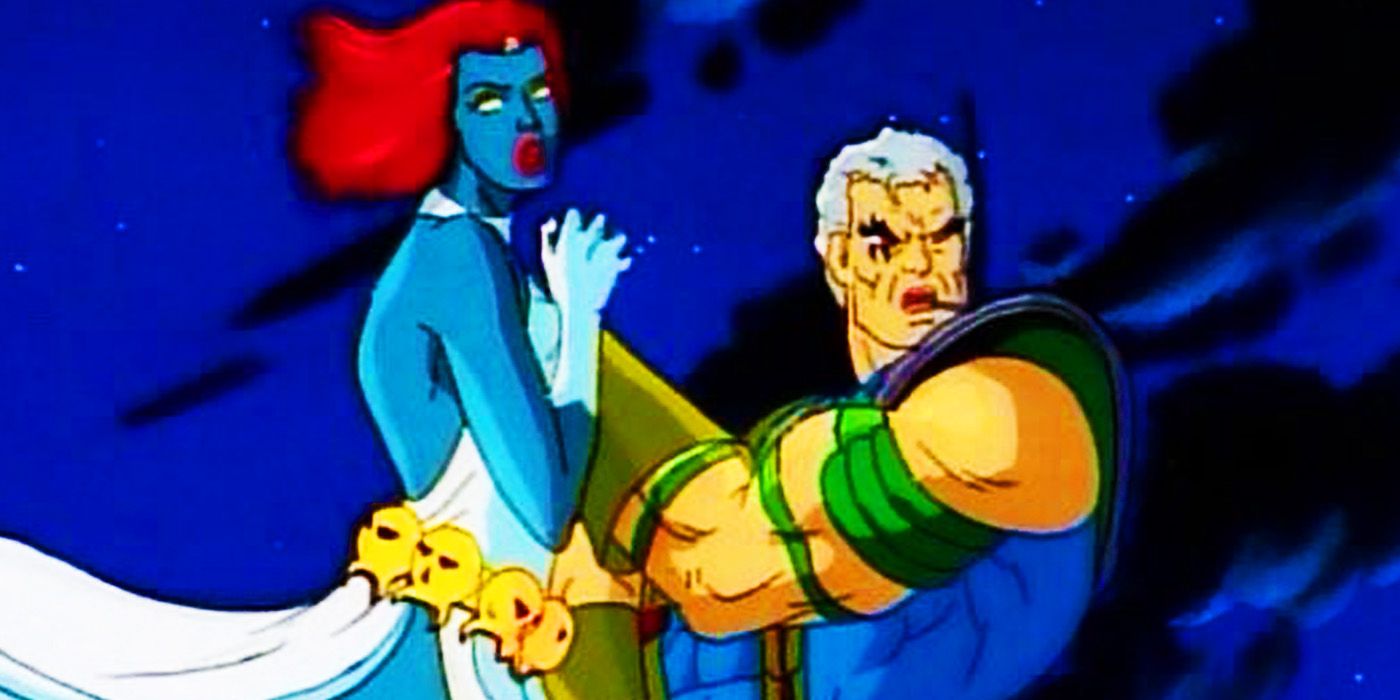
Cable’s introduction in X-Men: The Animated Series was also subject to inconsistencies. Initially introduced as a mysterious mercenary with a no-nonsense attitude, Cable’s character undergoes significant changes throughout the series. When he first appears, his backstory is largely a mystery, and he is portrayed as a gritty soldier with no apparent connections to the X-Men or the larger narrative.
However, in later X-Men: TAS episodes, Cable’s character is significantly altered. He is changed to be a time traveler from a dystopian future, with a cybernetic arm and a deep personal connection to the X-Men, particularly Cyclops and Jean Grey. The abrupt shift in Cable’s character was more in line with the comics but was still highly confusing. These changes feel disjointed and are never explained in the narrative, prompting some confusion.
3. Why Xavier Cannot Return After The Finale
Xavier Ultimately Returned In X-Men ’97
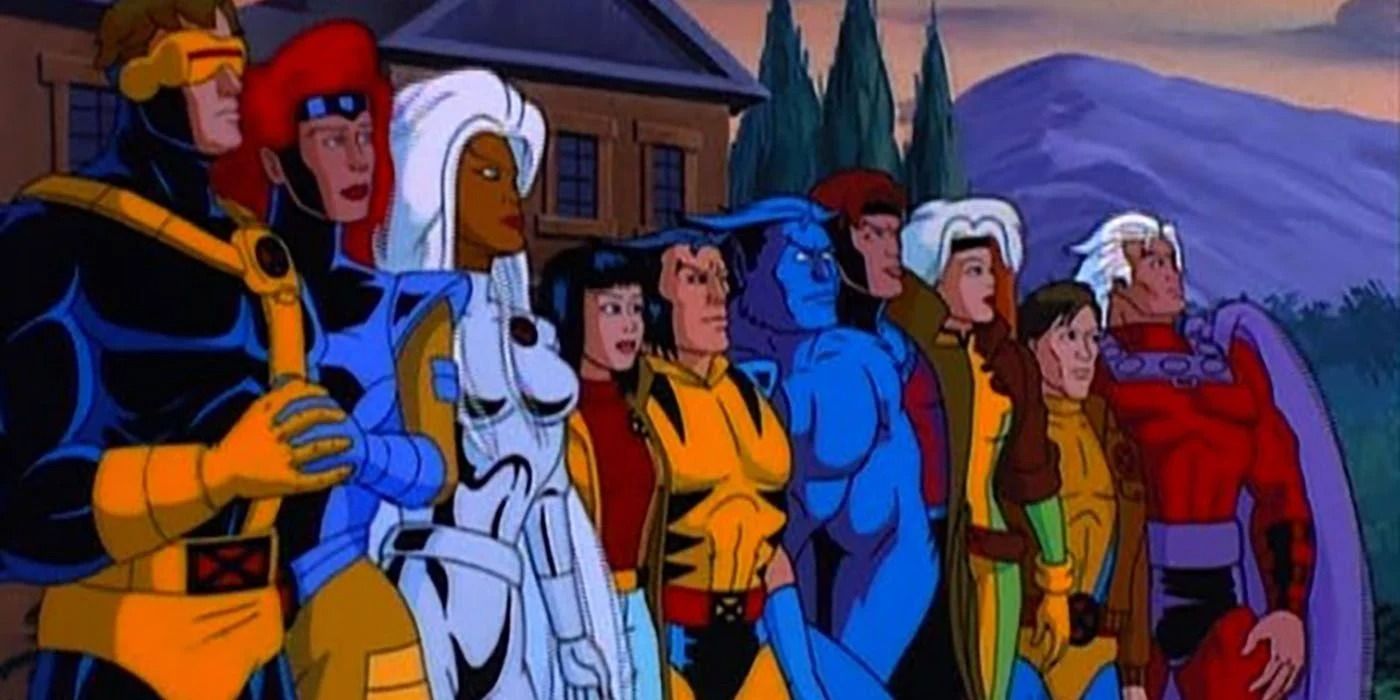
In the final episode of X-Men: The Animated Series, “Graduation Day,” Charles Xavier suffers a near-fatal injury, and the X-Men are faced with the heartbreaking reality that their mentor may die. In a last-minute twist, Lilandra, the Empress of the Shi’ar Empire, offers to take Xavier to her homeworld, where he can be healed. However, she warns that if he goes with her, he will never be able to return to Earth.
This dramatic moment raises a major question: Why can’t Xavier return after being healed? X-Men: TAS provides no real explanation for this stipulation. Is it a matter of intergalactic politics? A limitation of the Shi’ar’s healing technology? Or is there some other mysterious force at play? The lack of clarity surrounding Xavier’s departure makes his exit feel forced and unresolved. This issue becomes even more perplexing with X-Men ’97, where Xavier does indeed return to Earth.
2. Iceman Is Made Into An Antagonist
Iceman Was An Original X-Men
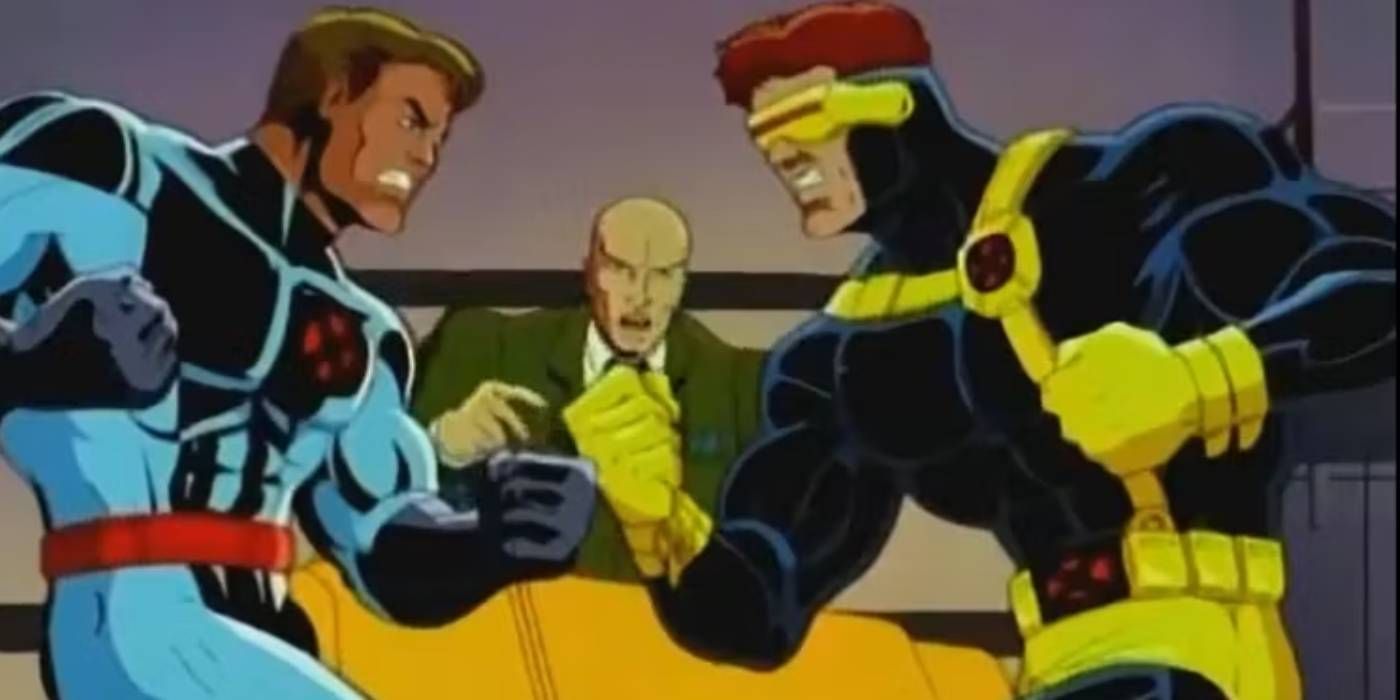
Iceman, one of the original X-Men, makes a surprising appearance in X-Men: TAS season 3, episode 11 “Cold Comfort,” where he is depicted as having a strained and antagonistic relationship with Professor Xavier and the rest of the X-Men. This portrayal is at odds with Iceman’s established comic book history as a founding member of the team and a generally light-hearted and easygoing character.
In “Cold Comfort,” Iceman’s distrust of Xavier and the X-Men leads to several confrontations, painting him more as an adversary than an ally. The episode suggests that Iceman harbors deep resentment towards Xavier, but the overall portrayal of Iceman as a hostile figure feels out of character. Instead of being a beloved hero and a vital part of the X-Men team, he is reduced to a temporary foe, a narrative decision that makes little sense within the broader context of the series.
1. Why Does Nobody Trust Wolverine?
Wolverine Often Relies On His Instincts
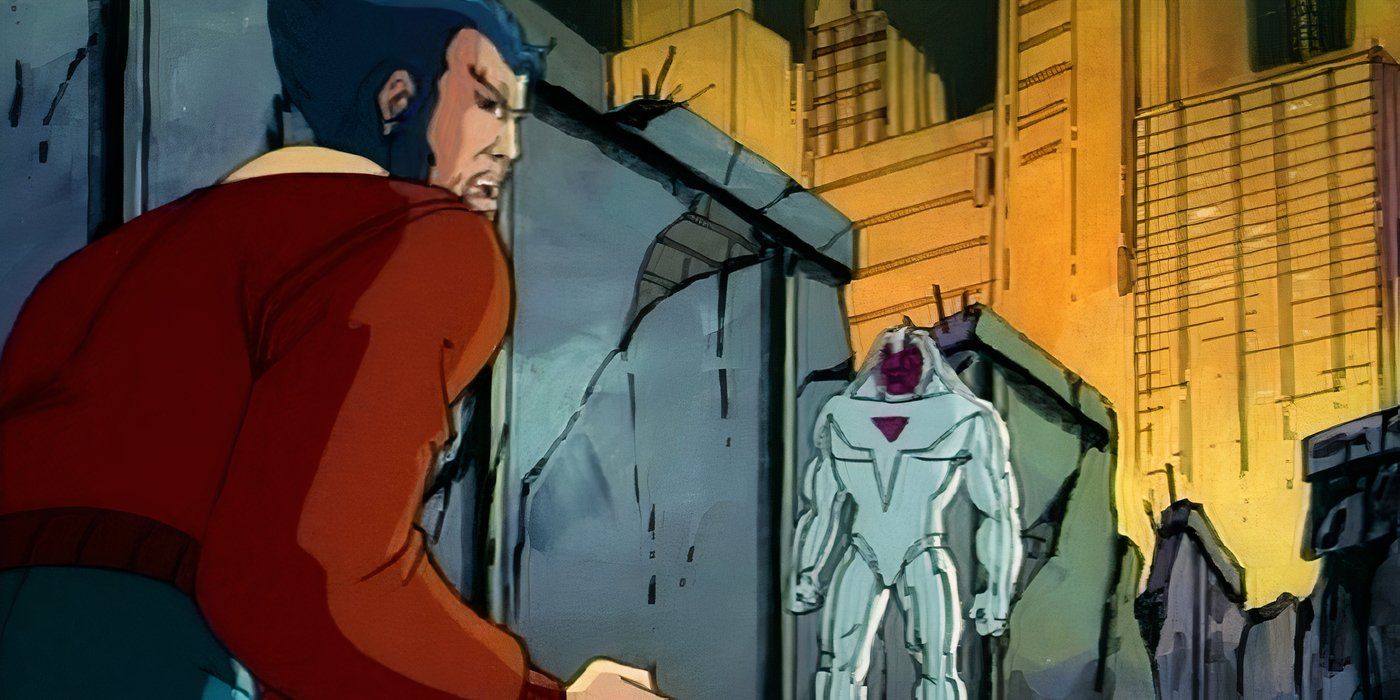
Wolverine is one of the most popular and capable members of the X-Men, known for his keen senses, combat skills, and unyielding determination. Despite these qualities, he is often portrayed in X-Men: The Animated Series as a character who is frequently dismissed or mistrusted by his teammates. This treatment of Wolverine is particularly baffling, considering how often he proves to be right in his assessments.
A prime example of this occurs in X-Men: TAS season 1, episode 4, “Deadly Reunions,” where Wolverine warns the X-Men about the dangers posed by Sabretooth, a vicious mutant with a personal vendetta against him. Despite Wolverine’s clear knowledge of Sabretooth’s capabilities and intentions, the rest of the team ignores his warnings, leading to unnecessary conflict and danger. This pattern of mistrust repeats, with Wolverine often sidelined or disregarded, even though his instincts and experience consistently prove to be valuable throughout X-Men: The Animated Series.